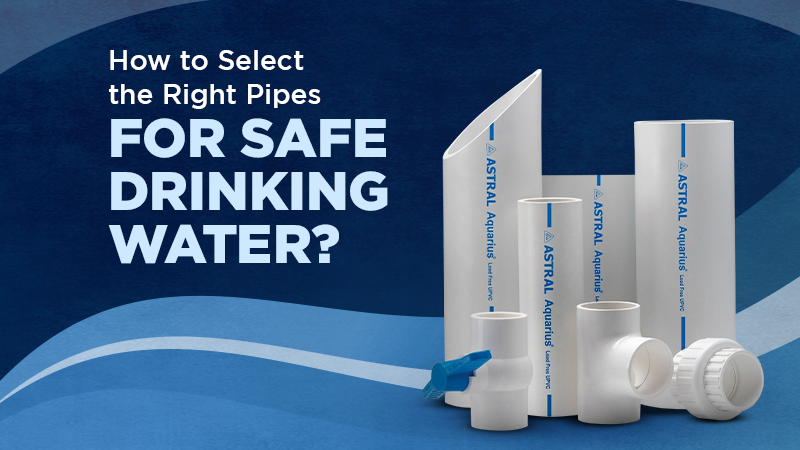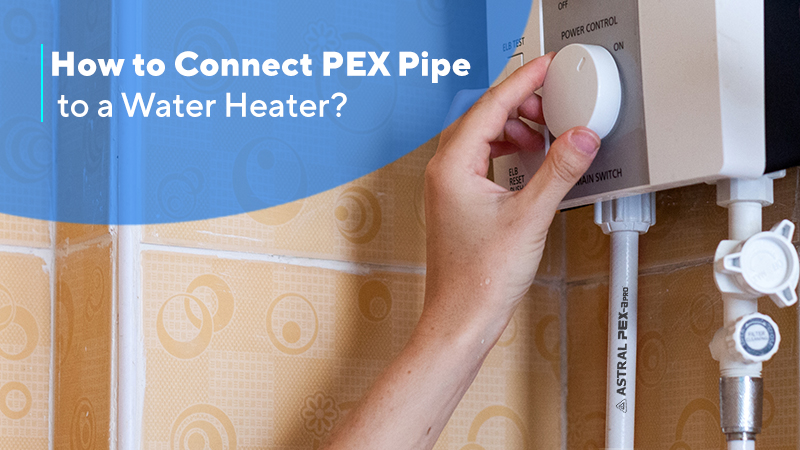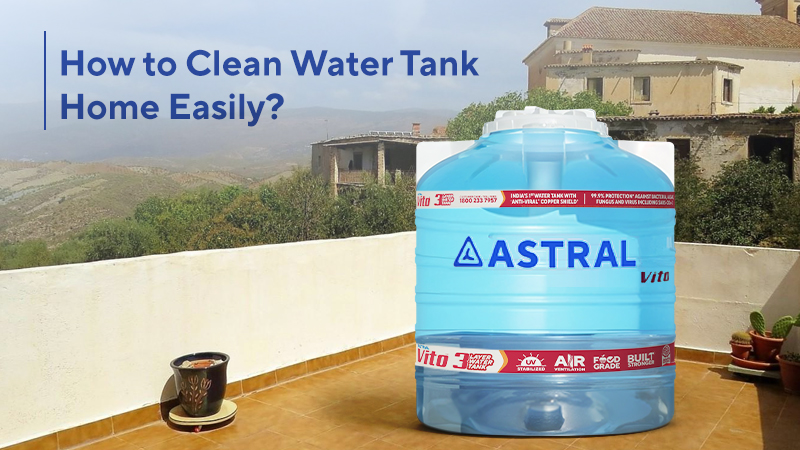
07 Aug 2024
How to Select the Right Pipes for Safe Drinking Water?
The materials of water pipes that distribute drinking water should differ from other building materials. These pipes come directly in contact with the water we drink and cook with, every day. That is why ensuring a safe pipe for potable water transportation is paramount to avoid serious health hazards.
Traditionally, lead pipes were the primary choice for the transportation of potable water. These pipes are durable and corrosion-resistant, making them popular. However, toxic materials like lead could seep through these pipes and get mixed with the drinking water. The higher level of lead in human bodies causes significant health risks, especially in children and pregnant women.
After severe lead contamination in many countries, worldwide health regulators have encouraged the avoidance of lead-based pipes for drinking water. Today, multiple water pipes are made of safe materials for potable water distribution, without the risk of contamination. Other than the pipe material, several other important factors make a pipe safe for potable water.
Tips for Choosing the Right Pipes for Safe Drinking Water
Essential Considerations for Choosing a Safe Potable Water Pipe
1. Certifications: All pipes and fittings come from certain certifications that ensure their compliance with national and international standards. Choose a pipe with BIS (Bureau of Indian Standards), NSF (National Sanitation Foundation), and ISI certifications for safe, hygienic water transportation.
2. Material: Copper, PEX, CPVC, uPVC, and HDPE pipes are certified lead-free pipes for clean, safe drinking water. Among all of these, uPVC pipes have emerged as a sustainable and economical option.
In 2004, Astral Pipes introduced Aquarius lead-free uPVC pipes in India, a revolutionary step towards a safe, healthy future.
3. Sustainability: Choose durable plumbing pipes and fittings that can handle high water pressure, and resist wear and tear, to ensure a long-lasting and reliable water supply.
Why choose Astral for safe drinking water pipes?
Considering all the above factors, here are our top recommendations for safe drinking water pipes:
Our CPVC PRO pipes and fittings are made with indigenous CPVC compounds and have the highest number of NSF, UPC-1, and BIS approvals. These plumbing pipes and fittings are GRIHA-certified green products with exceptional processability and superior characteristics. With a maximum service temperature of 93°C, the CPVC pipe range makes for the ideal plumbing pipes and fittings for drinking water.
Aquarius uPVC pipes are certified lead-free pipes, making them one of the best and most safe choices for potable water. These UV stabilised pipes are solid, capable of withstanding high pressures and demanding conditions, and lightweight for easy handling and installation. It also offers a wide range of uPVC pipe fittings, ensuring adaptability to various plumbing needs and configurations.
Pex-a PRO is a hot and cold plumbing pipe and fittings using cross-linked polyethylene pipes, joined by expansion rings. The system features high-quality, durable PEX-a pipes, colour-coded rings for easy identification, and brass/PPSU fittings that meet European sanitary standards. This innovative system offers a reliable and efficient solution for potable water pipes.
Choosing the right pipes for your drinking water is a critical decision. Opt for plumbing pipes and fittings that prevent water contamination, and are durable, easy to install, and adhere to safety standards. Ensure your family’s health and well-being with lead-free pipes that deliver a safe and reliable supply of clean drinking water.
Read our blog on Choosing the Right Water Tanks for Homes










